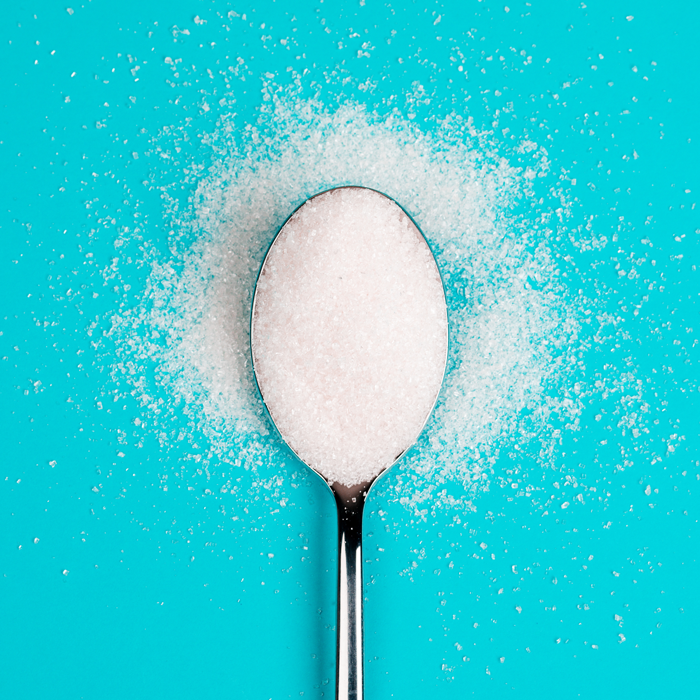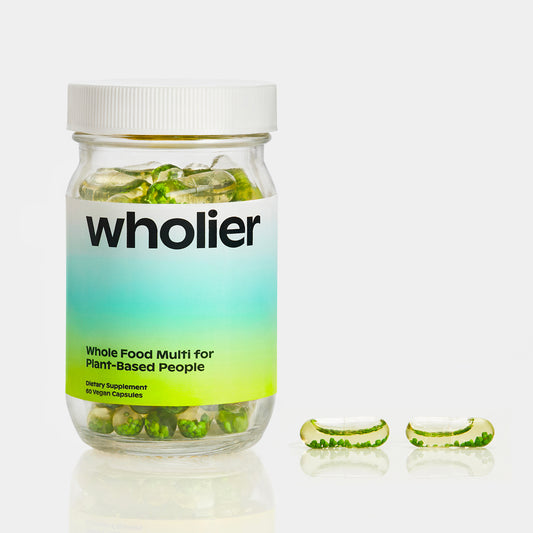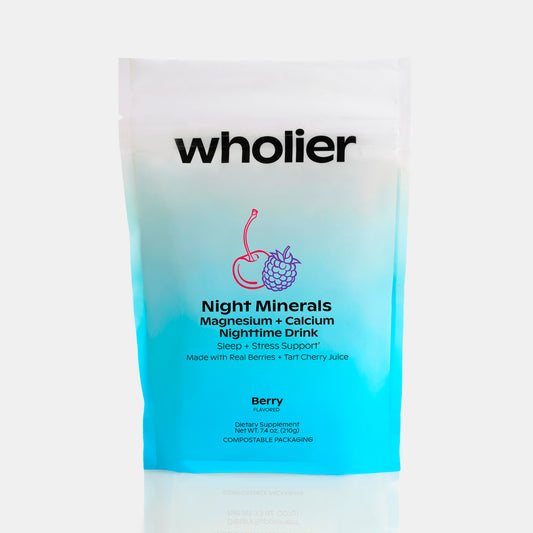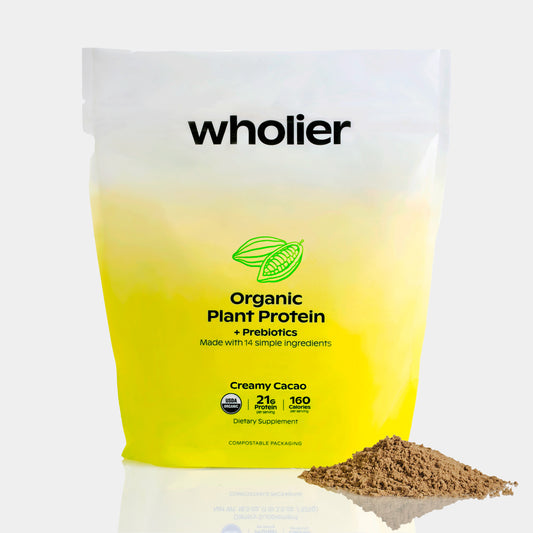
Are Artificial Sweeteners Bad for You?
Artificial sweeteners are a type of sugar substitute that are often used as a low-calorie alternative to sugar. They are commonly found in a range of products, from protein powders to beverages. But are they bad for you? Let's take a closer look.
What Are Artificial Sweeteners?
Artificial sweeteners are synthetic sugar substitutes that are often used as a low-calorie alternative to sugar. They are typically much sweeter than sugar, which means that only a small amount is needed to achieve the same level of sweetness. There are several different types of artificial sweeteners, including aspartame, saccharin, sucralose, acesulfame potassium, neotame, and advantame.(1)
How are Artificial Sweeteners Processed?
Artificial sweeteners are typically made by chemically altering natural substances to make them sweeter. For example, aspartame is made by combining two amino acids, phenylalanine and aspartic acid. Saccharin is made from a compound called benzoic sulfimide. Sucralose is made from sugar, but it is chemically altered to make it much sweeter.(2)
What Products Contain Artificial Sweeteners?
Artificial sweeteners are commonly found in a wide range of products, including soft drinks, chewing gum, baked goods, dairy products, tabletop sweeteners, protein powders, energy bars, cereals, condiments, and desserts.(3)
What are the Dangers of Artificial Sweeteners?
While artificial sweeteners are generally considered safe, there are some potential dangers that should be taken into consideration. Let's look at some of the most significant risks:
- Weight Gain: Some studies have suggested that artificial sweeteners may actually lead to weight gain, rather than weight loss. This may be because artificial sweeteners can disrupt the body's ability to regulate calorie intake. One study found that consuming diet soda daily was associated with a 70% greater increase in waist circumference over a ten-year period compared to non-consumers.(4)
- Increased Risk of Diabetes: There is some evidence to suggest that consuming artificial sweeteners may increase the risk of developing type 2 diabetes. One study found that consuming just one diet soda per day was associated with a 36% higher risk of developing metabolic syndrome, a cluster of conditions including high blood pressure, high blood sugar, and excess belly fat that increase the risk of heart disease and diabetes.(5)
- Digestive Issues: Artificial sweeteners can also cause digestive issues, such as bloating, gas, and diarrhea. This is because they are not broken down and absorbed in the same way as natural sugars, which can lead to gut discomfort. One study found that consuming aspartame, sucralose, and acesulfame potassium led to changes in gut bacteria that are associated with obesity and metabolic disorders.(6)
- Increased Risk of Cancer: While there is no conclusive evidence to suggest that artificial sweeteners directly cause cancer, some studies have raised concerns about their safety. For example, one study found that saccharin may increase the risk of bladder cancer in rats. However, these findings have not been replicated in humans.(7)
It's important to note that the evidence on the dangers of artificial sweeteners is not definitive, and more research is needed to fully understand their long-term effects on health. However, it is clear that consuming artificial sweeteners in excess may have negative impacts on health.
What Are the Natural Alternatives?
If you're looking for a natural alternative to artificial sweeteners, there are several options to consider. Here are some of the most popular and well-researched natural sweeteners:
- Stevia: Stevia is a natural sweetener that is derived from the leaves of the Stevia rebaudiana plant. It is much sweeter than sugar, but has zero calories and does not affect blood sugar levels. In fact, some studies have shown that stevia may have potential health benefits, such as lowering blood pressure and reducing inflammation.(8)
- Monk Fruit: Monk fruit is a natural sweetener that is derived from the fruit of the Siraitia grosvenorii plant. It is much sweeter than sugar, but has zero calories and does not affect blood sugar levels. Some studies have shown that monk fruit may have antioxidant and anti-inflammatory properties, as well as potential benefits for blood sugar control.(9)
- Coconut Sugar: Coconut sugar is a natural sweetener that is derived from the sap of coconut trees. It is lower in calories than sugar and has a lower glycemic index, making it a healthier alternative. Coconut sugar is also rich in minerals, such as potassium and iron.(10)
- Date Sugar: Date sugar is a natural sweetener that is made from dried dates. It is high in fiber and nutrients, and can be used as a substitute for sugar in baking, smoothies, and other recipes. Date sugar is also lower in calories than sugar and has a lower glycemic index.
While artificial sweeteners are generally considered safe, there are some potential dangers that should be taken into consideration. If you're looking for a healthier alternative, there are several natural sweeteners to choose from, including stevia, monk fruit, coconut sugar and date sugar. Ultimately, the key to a healthy diet is moderation and balance, so be sure to consume sweeteners in moderation and focus on a whole foods-based diet. Always consult with your healthcare provider before making any significant changes to your diet.
Sources:
(1) FDA. (2021). High-Intensity Sweeteners. Retrieved from https://www.fda.gov/food/food-additives-petitions/high-intensity-sweeteners
(2) Harvard Health Publishing. (2018). Artificial sweeteners: sugar-free, but at what cost?. Retrieved from https://www.health.harvard.edu/blog/artificial-sweeteners-sugar-free-but-at-what-cost-201207165030
(3) American Heart Association. (n.d.). Sugar Substitutes. Retrieved from https://www.heart.org/en/healthy-living/healthy-eating/eat-smart/sugar/sugar-substitutes
(4) Fowler, S.P., Williams, K., Resendez, R.G., Hunt, K.J., Hazuda, H.P., & Stern, M.P. (2008). Fueling the obesity epidemic? Artificially sweetened beverage use and long-term weight gain. Obesity, 16(8), 1894-1900.
(5) Suez, J., Korem, T., Zeevi, D., Zilberman-Schapira, G., Thaiss, C.A., Maza, O., … Segal, E. (2014). Artificial sweeteners induce glucose intolerance by altering the gut microbiota. Nature, 514(7521), 181-186.
(6) Swithers, S.E. (2013). Artificial sweeteners produce the counterintuitive effect of inducing metabolic derangements. Trends in Endocrinology and Metabolism, 24(9), 431-441.
(7) National Cancer Institute. (2021). Artificial Sweeteners and Cancer. Retrieved from https://www.cancer.gov/about-cancer/causes-prevention/risk/diet/artificial-sweeteners-fact-sheet
(8) Geeraert, B., Crombe, F., Hulsmans, M., Benhabilès, N., Marynissen, G., & Baatsen, P. (2019). Stevioside inhibits atherosclerosis by improving insulin signaling and antioxidant defense in obese insulin-resistant mice. International Journal of Obesity, 43(4), 787-798.
(9) Zhang, Y., Chen, M.L., Zhou, Y., Yi, L., Ran, L., Chen, S.H., … Gutierrez, O.M. (2016). Effects of Mogroside V on oxidative stress in skeletal muscle of streptozotocin-induced diabetic rats. Nutrients, 8(7), 414.
(10) Budak, N.H., Aykin, E., Seydim, A.C., Greene, A.K., & Guzel-Seydim, Z.B. (2016). Functional properties of vinegar and its role in food preservation, flavor and health benefits. Food Science and Technology, 27(2), 469-484.






